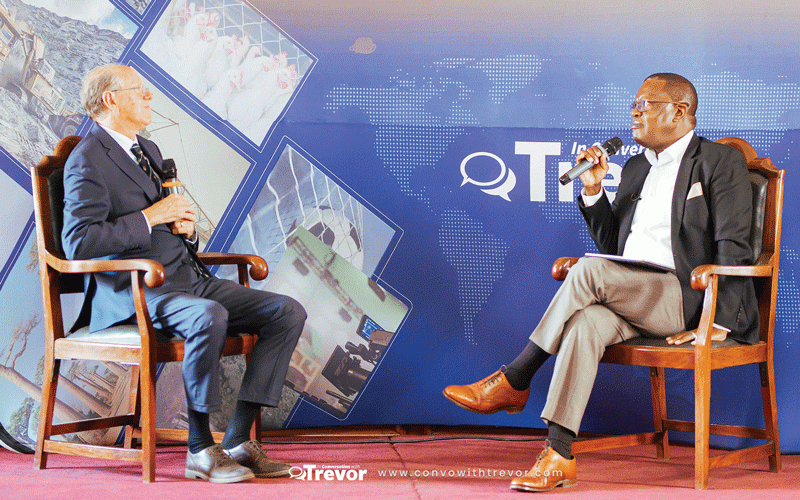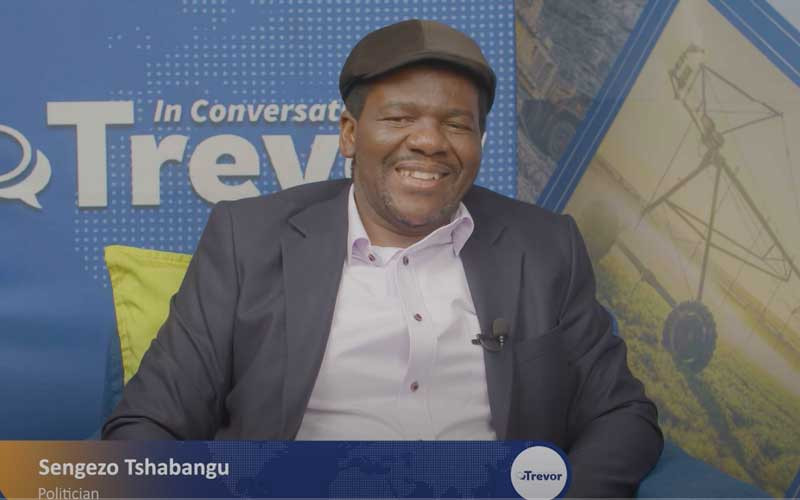
ALPHA Media Holdings chairperson, Trevor Ncube, yesterday said it was criminal that the government was dragging its feet to declare the Bulawayo water crisis a state of national disaster.
Residents of the city are going for several days without water after the municipality introduced a tight water-rationing regime owing to dwindling levels at supply dams.
“That’s criminal that the city in general is talking about that kind of rationing; it doesn’t seem to be a crisis in the nation that Bulawayo has to exist in this punishing situation,” Ncube said during the Bulawayo series of In Conversation with Trevor held at the Bulawayo Council Chambers yesterday.
Council last year petitioned the government to declare the city a water crisis area to enable the local authority to mobilise outside support to implement short-to-medium term interventions.
Government instead appointed a technical committee to look into the water challenges.
However, the water crisis has deepened with no solution in sight.
Mayor David Coltart said the city faced a crisis.
“As we sit here today, our dams are sitting at 31% capacity,” he said.
- Masunda lands global sugar industry position
- Revisiting Majaivana’s last show… ‘We made huge losses’
- In Conversation with Trevor: Chisamba: Let’s be proud of ourselves
- Edutainment mix: The nexus of music and cultural identity
Keep Reading
“Catchment areas have been ravaged by gold panners, so even if we [have rain] this coming season, we are not guaranteed that this water will actually get to our dams.
“If we have another drought this year, or a moderate rainy season, we will face even more shortages of water this coming year, so this needs a sense of urgency to be addressed.”
Coltart said rehabilitation of the Insiza and Mtshabezi pipeline and desilting the two dams might serve as a short-term intervention.
He lamented lack of funding from government as the root cause of the delay in the rehabilitation of Mtshabezi pipeline.
He said the medium-term intervention involved the construction of Glassblock Dam, mooted in the 1980’s.
Once complete, it can supply the city an estimated 65-70 megalitres of water per day.
“We have a clear plan, persuaded the government to work with us on the dam, and it is now on board. The biggest challenge is of course to raise US$130 million which we need to construct the 32km pipeline from the dam to our existing water reticulation networks,” he said.
He bemoaned the slow pace at which the Gwayi-Shangani Dam project is progressing.
“So that [Gwayi-Shangani] has not happened within the timeframe that the government projected, so we are urged to engage on plan B, and that is Glassblock,” Coltart said.
The Gwayi-Shangani project to pipe water from the mighty Zambezi River, over 400km away, is seen as a long lasting solution to Bulawayo’s water woes.
It was mooted in 1912 and over 100 years later now, the project is yet to be completed.
Land, Agriculture, Water, Fisheries and Rural Development minister, Anxious Masuka, had said the gigantic Lake Gwayi-Shangani would be completed ahead of the 2023/24 summer cropping season.
The deadline was missed. Critics say the government uses the project as a campaign gimmick during elections.
Government has since moved the deadline to December this year, but indications are that the project is way behind schedule.










